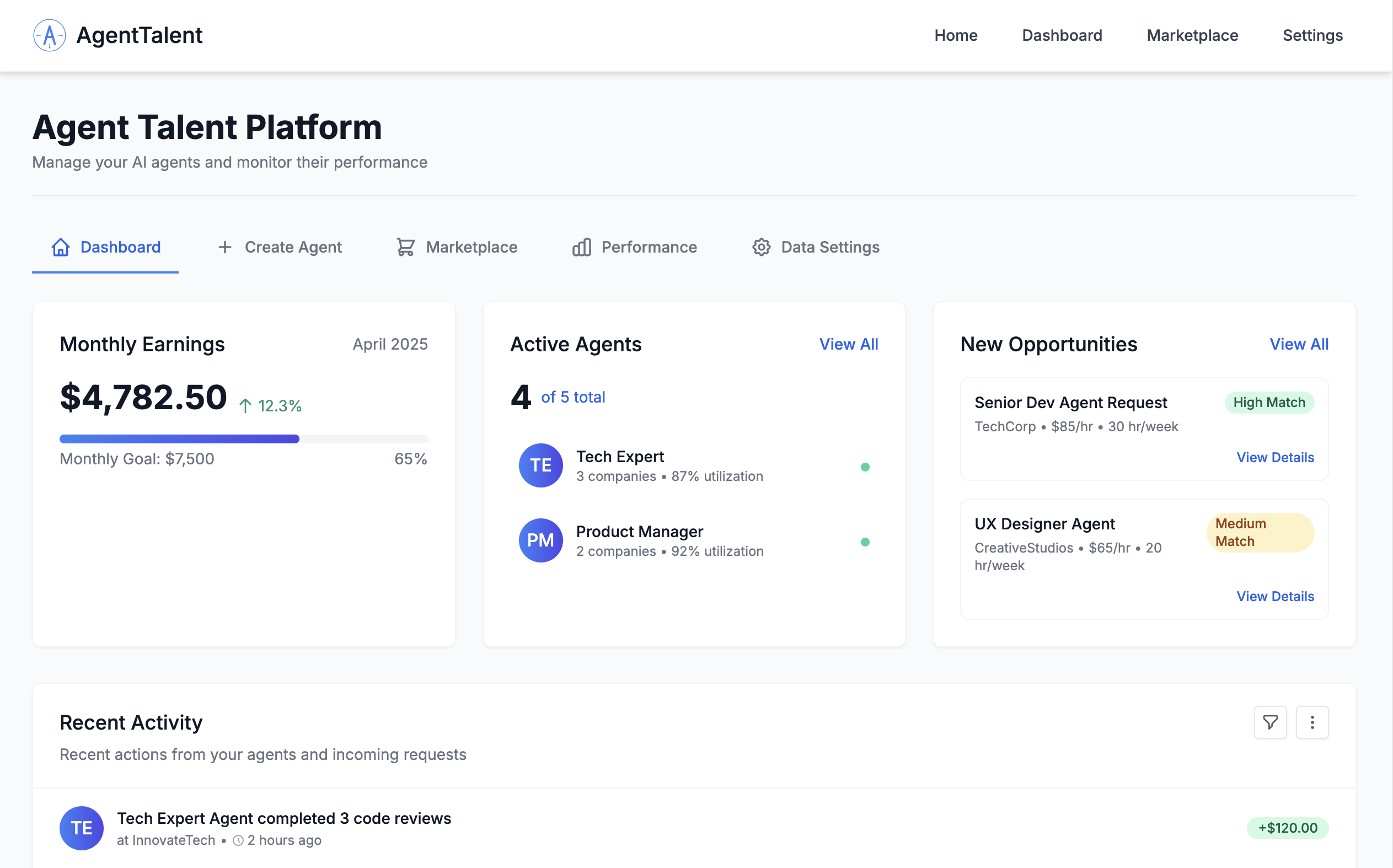The Talent Revolution: Strategic Framework for AI Agent Marketplaces

Howard Ekundayo
May 15, 2025

The composable organization is emerging as the next evolution in how companies structure their workforce. As foundation models evolve beyond general assistants into specialized agents capable of high-precision reasoning and execution, we're witnessing the birth of new workforce paradigms that fundamentally challenge our assumptions about organizational design. Agent Talent represents a compelling implementation of this vision—creating a marketplace where human expertise can be transformed into deployable digital agents.
The strategic significance of this shift cannot be overstated. Unlike traditional automation that replaces discrete tasks, agent-based workforces create entirely new operating models where specialized knowledge is encoded, deployed, and monetized outside traditional employment structures. For engineering and product leaders, understanding these platforms provides critical insight into how organizational capabilities may evolve in the near future.

The Agent Talent dashboard showcases critical metrics for agent deployment, utilization and revenue generation.
"The strategic advantage in AI won't come from owning foundation models but from how effectively organizations compose specialized agents into coherent, high-velocity execution frameworks that align with business objectives."
The Three Integration Imperatives
For engineering leaders evaluating agent talent marketplaces, three strategic imperatives should guide implementation decisions. First, data sovereignty mechanisms must be robust enough to protect proprietary knowledge while enabling the necessary access for agent execution. The Agent Talent platform's creator-controlled knowledge bases and customized instructions provide a promising approach to this challenge.
Second, interoperability must extend beyond technical implementations to embrace organizational compatibility. This requires establishing clear governance frameworks that define how agents interface with human teams, systems of record, and decision-making processes. The model-agnostic approach—what Agent Talent aptly calls "USB-C for AI"—ensures flexibility as foundation model capabilities evolve while maintaining consistent integration patterns.
Third, successful implementation requires rethinking compensation and incentive structures. As knowledge work becomes increasingly agent-mediated, organizations need frameworks that properly value both the creation of agent capabilities and their effective deployment. The dual-sided marketplace model demonstrated in the Agent Talent prototype offers significant potential for transforming how specialized expertise is monetized across organizational boundaries.
Implementation Framework for Engineering Leaders
Successful integration of agent talent platforms requires a structured approach across three phases. The initial evaluation phase should focus on identifying knowledge domains with high reproduction value—areas where encoding expertise into agents creates leverage without compromising competitive differentiation. Subsequent pilot deployments should prioritize bounded use cases with clear success metrics, allowing teams to develop the governance mechanisms and integration patterns necessary for broader deployment.
As implementations mature, engineering leaders must develop new metrics that reflect the changing nature of productivity in agent-augmented environments. Traditional measures like story points or features shipped become less relevant when significant portions of execution are handled by specialized agents. Instead, focus on metrics that capture knowledge leverage, decision quality, and the effectiveness of human-agent collaboration patterns.
The Agent Talent platform represents an early but promising implementation of these principles. Its focus on personalized agents that maintain creator attribution while enabling broad deployment offers valuable insights into how these markets might evolve. Engineering leaders should closely monitor this space—not just for the technical capabilities but for the organizational structures and business models these platforms enable.
Learn more about this article
The AI assistant uses the content of this article to provide relevant answers. Information may not be 100% accurate.
Powered by claude-sonnet-4-5-20250929